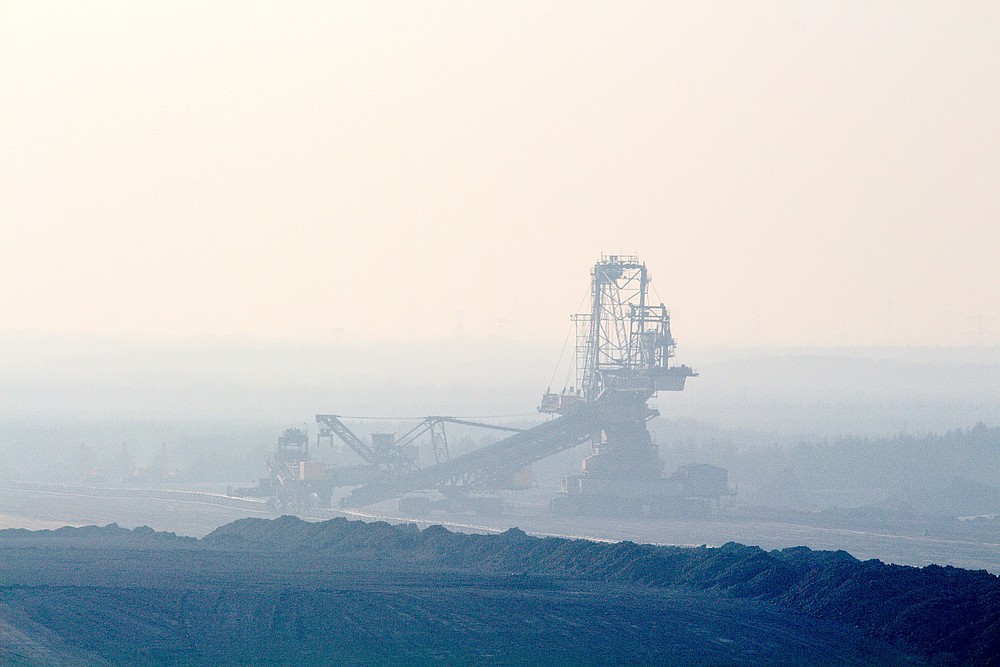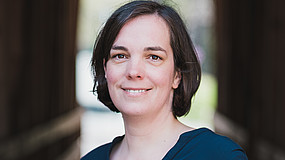Dr. Julia Gabler interviewed by "Neue Lausitz - The leading medium for change"

An insightful interview was published in the February 20, 2024 issue of the magazine "Neue Lausitz - Das Leitmedium für den Wandel", an important online medium for structural change by Christine Keilholz. TRAWOS Institute Director Dr. phil. Julia Gabler is interviewed about 'mining', 'energy' and 'landscape' in Lusatia, where she also discusses the participation of citizens on these topics. The magazine has established itself as an important source of information through its in-depth reports and interviews and regularly offers its readers exciting insights into regional topics.
With its mining history, Lusatia is predestined to find compromises, says to find compromises, says Görlitz social scientist Julia Gabler. This should should be used when it comes to conflicts over landscape use.
”Ms Gabler, why is the expansion of renewables causing such a stir in
the countryside?
This is the famous effect that we call "not in my backyard". It means
that people who are generally in favor of climate protection become opponents when
this climate protection gets too close to them. This is not unusual. There is
a resistance to technical renewal processes that is quite structural.
This is now becoming more pronounced in our region because Lusatia, as an energy region, is undergoing
transformation.
Do we have a problem with our homeland changing too quickly?
Especially the landscape, which we see every day?
I don't like the term "home". I prefer "home", which is more positive and
more constructive and expresses everything that can be taken from the word home as a good thing
.
Let's take home as the social space that consists of the private home and the
public sphere, where I feel at home and recognized, where I am not challenged in
my world view, where I know every path and every stone
and want it all to still look the same in 20 years' time, even if I
then only come to visit. Isn't that what we all want?
Of course we do. But we usually get something else. Home, i.e. an untouched landscape,
which is linked to a traditional idea of continuity, is something we only have in selected small areas of
Lusatia. This contrasts with the
new, devastated villages and the open-cast mining landscape. Lusatia is more of an
example of how social access to the landscape and its protection
can coexist.
The landscape of Lusatia has been scarred in many places by mining.
How can it now be turned into something with a future?
In a project with students, we looked at what alternative plans
for the lake landscape actually exist. We discovered that there are none at all. Since
the 1950s, it has always been said that we will do opencast mining and then
water will come in and then we will do lake tourism. The engineer Otto Rindt called
this "double land use". There was never any discussion about alternatives. We
are still very much surrounded by this idea that Lusatia has to function as a tourist
destination. In this respect, this landscape use is an instrument to fulfill an
economic purpose.
What do you mean by that?
We are doing the same thing in structural change as we did in the 1990s. We are investing in
business parks because we think that this will create economic prosperity
. At the same time, we are rushing ahead because we are afraid we won't manage to spend the
money. I sit on the monitoring committee where funding projects for
Oberlausitz are decided. Sometimes you get dizzy at
the sums of money that are approved. My impression is that many projects are only
carried out so that the money doesn't expire.
How can we do better?
We should talk more about landscape and participation. That's very
small-scale, then we end up with local initiatives such as the Partwitzer Förderkreis. At
groups like this develop concepts on how to reconcile landscape protection and
walking paths. People have very real interests and
should be given more attention than the next technological hype or the
adherence to master plans such as the lake district. In the structural change
we are constantly chasing after hype for fear of missing out on the next megatrend.
That's the case with hydrogen, e-mobility and artificial intelligence. And there
is always the message: we have to become a leading region in Europe. These
hypes are usually still a long way off, but everyone wants to get on board straight away. I
don't think that's the right approach.
"Taking people along" is a magic formula when it comes to topics
that people are not yet convinced of. What's wrong with this
approach?
It pretends to know what is right, combined with a belief in innovation. A political target is defined
- let's take the two percent area target for
renewables. Then the companies have to get on board to support the project
economically. And then the citizens should be convinced by positive stories
. But if that doesn't work, then social scientists
are sent out to conduct acceptance research. As a social scientist
, I am skeptical about acceptance research and can tell you why it
doesn't work: Because it infantilizes citizens. I prefer to ask: What is relevant for people
, what do they actually stand up for?
There have also been studies that have shown that citizens are not very interested
in getting involved.
I am also not of the opinion that citizens should always be involved everywhere.
I believe that the stringency that the administration needs to implement a major project
is constantly at odds with the multi-perspectivity of citizens' interests.
We actually have to balance this out again and again. The work in the
workshops has shown how diverse the discussions have to be when you involve
numerous social interest groups. You also have to
communicate that certain things are not possible.
I hardly ever hear that things don't work in connection with structural change
.
We are not particularly imaginative politically. Politicians are increasingly trying to reflect the
needs of people in their living environments. But that is not their
task. Politics must clearly state that it is about a minimal consensus. This
means that I don't just have to put forward my interests - I also have to put up with the
downsides. In my experience, people in Lusatia
are very willing to put up with things.
In what way?
People in Lusatia are used to different living environments and
are very good at dealing with contradictions. You can work in opencast mining and
still be critical of what that means for the environment and your own surroundings.
These are actually ideal conditions for finding compromises. The
people see that there is a necessity - also a socially generated
necessity - to make certain changes here. They are then also
prepared to bear the costs for the common good of society.
So for clean energy, which is then also delivered to the big cities
?
Yes. In the past, when it came to coal, that meant: I accept that my laundry
is always dirty if the rest of the country gets electricity. That's very
public welfare-oriented and not at all romantic. That's how people think in this region
too. Lusatia has already had to endure a lot of change,
without being asked. If you ask them now, then you should also endure the
answer. And if the answer is "I'm worried
about all these solar panels", then we should accept that for the time being. If
we then succeed in discussing alternative locations as well as
model projects in which citizens can produce their own renewable electricity and
thus become independent in terms of electricity generation, then the
people will feel that they are being taken seriously and the solutions will be more diverse, more sensitive to conflict,
but also more open-ended.
(This is an interview from 'Neue Lausitz' from February 20, 2024.)
